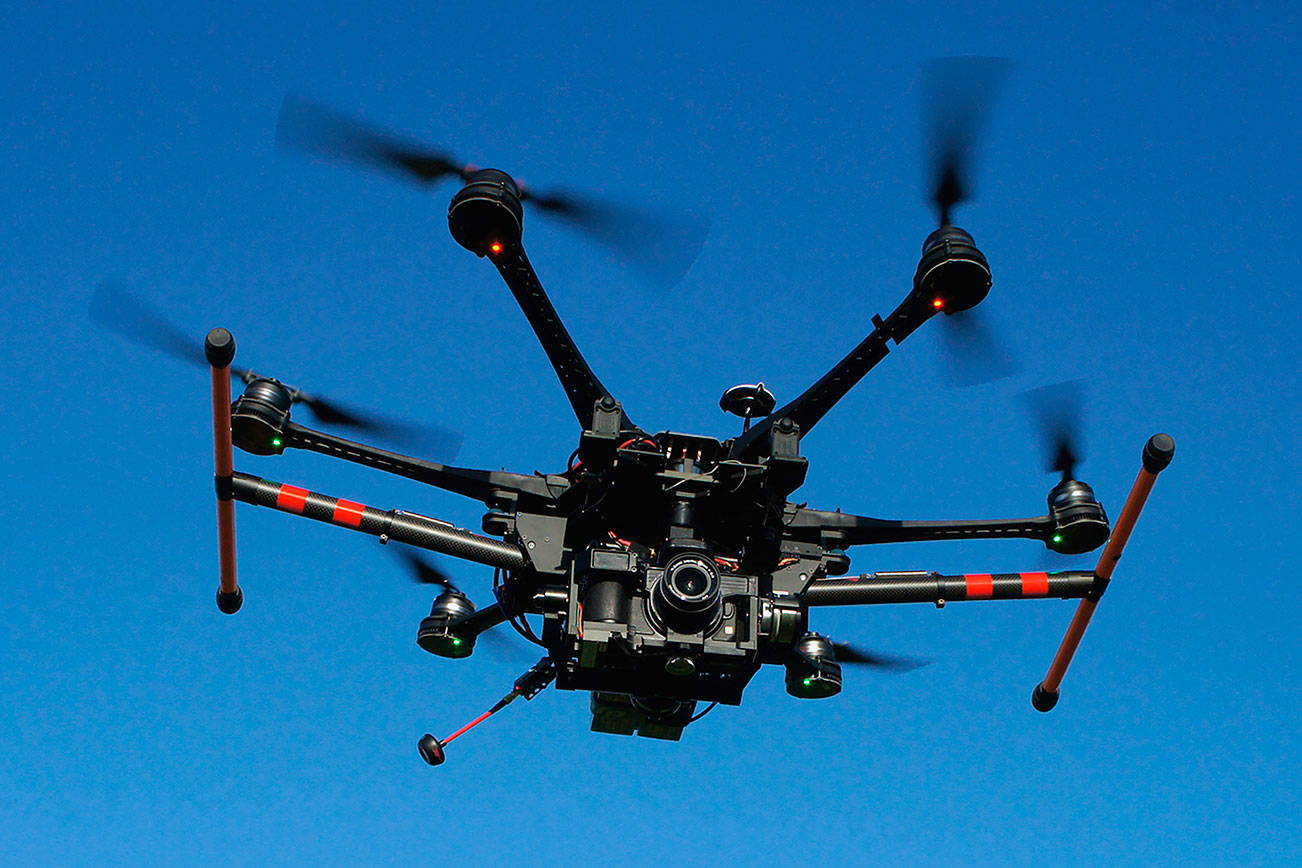While drones are coming of age in firefighting, they are also establishing a foothold in restoring fire-scorched forests.
Firefighting drones grabbed the spotlight last April 15 as viewers around the world watched Notre Dame Cathedral in Paris go up in flames. It has stood for more than 850 years, through wars, natural disasters and everything in between, including the fire.
At first, it appeared the iconic building would be destroyed; however, French firefighters used thermal vision drones to direct their hoses and get the upper hand on the situation. Notre Dame is massive, and having a view from above provided critical information that was not available on the ground.
In the days after the flames, drones were used extensively to collect key structural information and allow workers to safely enter the building and begin restoration.
Then last June, fire bosses near Flagstaff, Ariz., found themselves battling an 8,000-acre blaze, part of which had been used for World War II artillery training. Unexploded bombs, shells, bullets, grenades and mines posed a deadly hazard to firefighters on the ground, pilots in low-flying ,retardant- spraying aircraft and high-voltage transmission lines.
Drones not only provided a view of where the ordinance may have been, but allowed remote operators to drop ping-pong size fire bombs to start low-intensity backfires. It worked because when the main fire arrived, most of its needed fuel was gone.
While drones used in firefighting have drawn lots of attention, a new role is surfacing in helping to reforest burned wildlands.
Replanting trees as quickly as possible after a wildfire is one of the most important ways of reducing CO2, stemming erosion and preventing floods. Every year worldwide, 15 billion trees are destroyed by fire or pollution, and despite $50 billion a year spent by governments around our planet on replanting, there remains an annual net loss of 6 billion trees.
Over the last decade, western forestlands have been devastated by massive wild fires. As a result, thousands of acres have been left barren, particularly on federal lands. Congressional reforestation appropriations are woefully lacking, and that is unlikely to change.
That’s where new drone technology comes in. Start-up companies such as Seattle’s DroneSeed and England’s BioCarbon Engineering (BCE) have developed sophisticated 3D ground mapping software and precision tree planting techniques using swarms of drones. It is particularly helpful when replanting on steep slopes.
An experienced and energetic tree planter can place 800-1,000 seedlings over two acres each day. On the other hand, two operators controlling specially-equipped drones are 150 times faster and 4-10 times cheaper.
Seattle-based DroneSeed developed the technology and is deploying it in the Northwest. Hancock Forest Management, a large international forest landowner, contracted DroneSeed to replant a portion of its land burned by a massive 2018 southwest Oregon wildfire.
Drones surveyed the burned area designated for planting and to find suitable sites. They identified “micro-sites” such as stumps, which would shade the seedlings of trees native to the area and provide additional nutrients from decaying wood. Then they dispatched drones carrying hoppers full of seeds encapsulated within gel-packets the size of a hockey puck.
According to DroneSeed, “This medium provides an ideal growing condition for the seed, and even deters deer and elk from eating it.” With the mapping data, the swarm of drones fly precisely to the suitable location and replant the target area in a matter of hours.
Forests yield 40 percent of the clean water for the world’s 100 largest cities. Trees stabilize slopes in watersheds, reduce flooding and cleanse our air of greenhouse gases. Hopefully, drone planting works out as designed. It is a “game changer.”
Don C. Brunell is a business analyst, writer and columnist. He retired as long-time president of the Association of Washington Business, the state’s oldest and largest business organization, and now lives in Vancouver. He can be contacted at theBrunells@msn.com.
Talk to us
Please share your story tips by emailing editor@kentreporter.com.
To share your opinion for publication, submit a letter through our website https://www.kentreporter.com/submit-letter/. Include your name, address and daytime phone number. (We’ll only publish your name and hometown.) Please keep letters to 300 words or less.

